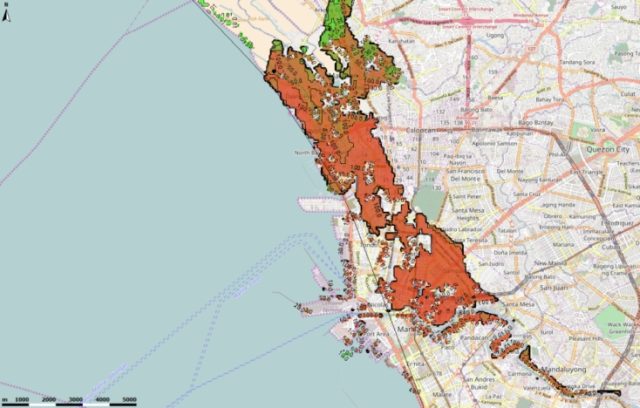Case study Manila, Philippines
In this study a Delft-FEWS based forecasting system was developed to address impact based early warning for Manila Bay, Philippines. The current implementation focusses on cyclone events. The forecasting chain combines global forecasted data on storm surges, a local Delft3D FM hydrodynamic model of the bay and the hinterland and the Delft-FIAT impact model (Flood Impact Assessment Tool). The project integrated hazard information and static exposure and vulnerability data in order to derive expected impact in addition to hazard forecasts.
Result and impact
Showcase how an impact-based forecasting system could be set-up for developing countries where limited data about hazards, exposure and vulnerability is available. The new developments have focussed on the following aspects:
- Live flood maps: forecasting flood inundation and extent;
- Live impact information: forecasting impact information, such as number of houses affected and damages.

Future developments
We are currently exploring the possible benefits of including uncertainty in the forecasts using ensemble members and how this information can be translated into warnings.

